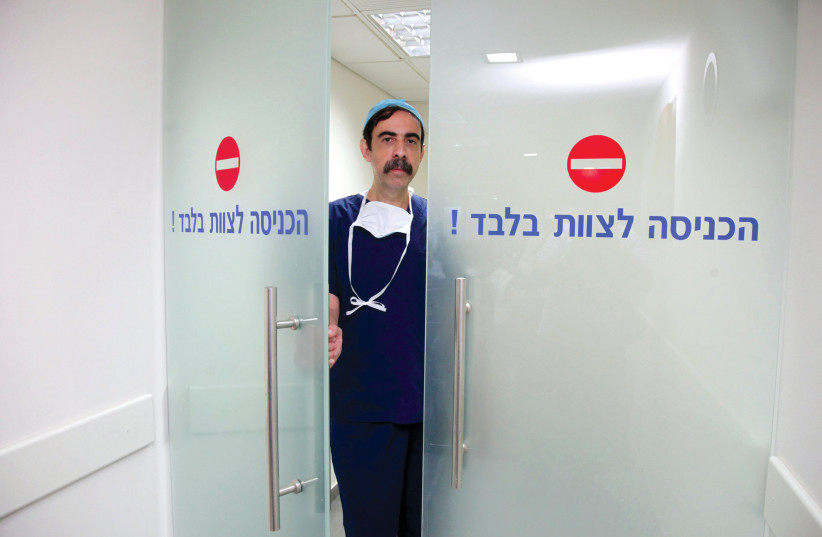The decision in the 1960s by the medical community to allow silicone breast implants for cosmetic surgery and reconstruction was a “historical medical error,” according to researchers at Ariel University, Sheba Medical Center, Tel Aviv University’s Sackler Faculty of Medicine and the Ministry of Health of the Russian Federation.
“The medical society mistakenly considered silicone to be an inert material in relation to the human body and to the immune system,” the team headed by TAU immunologist Prof. Yehuda Shoenfeld and Ariel University molecular biologist Dr. Gilad Halpert wrote in the latest issue of IMAJ, the English-language journal of the Israel Medical Association, under the title “Silicone breast illness [SBI] as a classical example of autoimmune/inflammatory syndrome induced by adjuvant.”
“The medical society mistakenly considered silicone to be an inert material in relation to the human body and to the immune system.”
The study
Over the years and around the world, “many reports have accumulated regarding the detrimental effect of silicone implants on human health, and a big debate regarding the safety of these implants has been raised.”
The study
he team interviewed many women with SBI who had severe fatigue, depression, widespread pain, palpitations, memory loss, dry eyes and dry mouth, and a rare type of lymphoma (blood cancer) among other complications.
Some women were given anti-depressant and anti-psychotic medications that did not improve their conditions and even made them worse.
“Both clinicians and scientists should work together to find alternatives to silicone implants and to find treatments for severe symptoms report by women with SBI and by other patients with suspected autoimmune dysautonomia-related disorders,” they wrote. Silicone is not a natural material but a “branched polymer that has been fabricated from silica atoms… Long exposure of humans to silica has been shown to trigger autoimmune diseases,” in which the body’s immune system attacks tissues and organs in the body.
After many complaints were heard, the US Food and Drug Administration (FDA) imposed a moratorium on silicone implants between 1992 and 1996. “Later, the FDA allowed their use if the companies who sold them provided relevant information regarding patient reports on side effects and clinical manifestations following implantations,” the authors wrote. But in fact, the companies continued to sell the implants and failed to report the information required by the FDA.
A group in the Netherlands reported that the microparticles of a polymer can migrate to the thyroid, gut, spinal cord and even the rain in a woman who had undergone implantation, and she died of breast cancer.
A large Israeli study published in the International Journal of Autoimmunity in 2018 comparing 20,000 SBI women with 100,000 controls found that many who got silicone implants developed Sjogren’s syndrome (dry eyes and dry mouth), sarcoidosis (small patches of red and swollen tissue develop in the body organs); rheumatoid arthritis and fibromyalgia (that causes pain all over the body, sleep problems, fatigue and often emotional and mental distress).
The researchers urged healthcare providers, family physicians, plastic surgeons and rheumatologists to “be more aware of the association of silicone breast implants” and clinical manifestations reported by their patients.
An alternative to the implants is grafting fat from the patient herself to the breasts for reconstruction after their removal due to breast cancer; this does not cause any reaction by the immune system.

